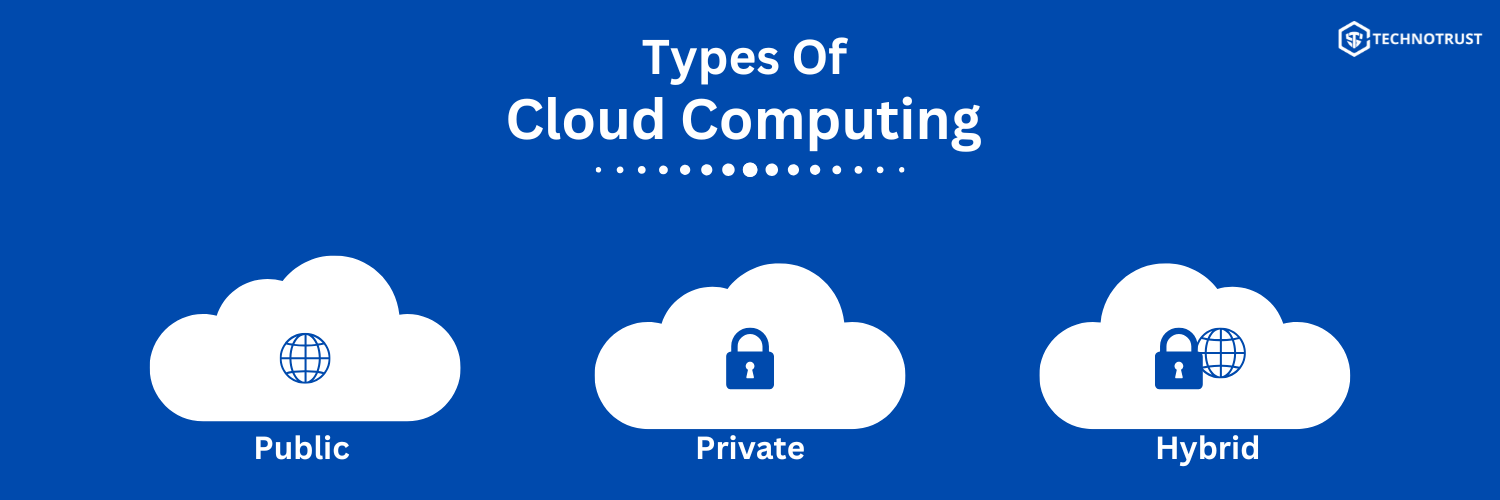Cloud computing is popular nowadays and used by many businesses and individual users. It is a technology in which data and applications are stored and processed on remote servers via the Internet. There are various deployment models that come in Cloud computing, which differ in their features and use cases. These models include public cloud, private cloud, and hybrid cloud. Let’s discuss and understand what are the difference between public, private and hybrid Cloud and know their use cases.

Public Cloud
A public cloud is a cloud service provided by third-party cloud service providers (such as AWS, Microsoft Azure, or Google Cloud). In this, cloud resources (such as servers, storage, and networking) are publicly shared, and many customers use the same resources.
Advantages of Public Cloud
Low Cost:
Public cloud services operate on a pay-as-you-go model, Public cloud allowing businesses to pay only for the resources they use. Shared infrastructure reduces individual costs, eliminating the need for expensive hardware, ongoing maintenance, and system updates, making it a cost-effective solution.
Scalability:
Public clouds offer the ability to scale resources up or down based on demand. This flexibility allows businesses to quickly adjust to changing workloads, ensuring they only pay for the resources needed at any given time. It eliminates the need for over-provisioning, reducing unnecessary costs.
Convenience:
Cloud providers handle infrastructure management, security, and updates, relieving businesses of these responsibilities. Users can access services from anywhere with an internet connection, enabling remote work and collaboration. High availability ensures minimal downtime and built-in tools streamline business processes like analytics and machine learning.
Use Cases
Startups and small businesses: Those who have a low budget and need resources only as per the requirement.
Data backup and recovery: Using the public cloud is very convenient for data backup and recovery.
Web hosting: Websites and web applications are hosted on public cloud platforms.
Private Cloud
Private cloud is a cloud that is used only by a single organization or business. This cloud can be hosted in the organization’s own data center or in the data center of a third-party service provider. It is a more customized solution with more focus on security, performance, and control.
Advantages of Private Cloud
Security:
Private cloud offers enhanced security compared to public cloud since the resources are dedicated to a single organization. This isolation reduces exposure to potential threats and gives businesses more control over their security measures. Organizations can implement stricter security protocols, customize firewalls, and manage data encryption to ensure sensitive information is well protected.
Control:
Private cloud provides full control over cloud resources, allowing businesses to tailor the environment to meet specific needs. This customization can include choosing the hardware, software, and security measures, as well as defining access policies and user privileges. The organization has greater flexibility in managing and adjusting services according to its operational requirements.
Performance:
With a private cloud, all resources are dedicated to a single organization, ensuring better performance. Unlike public cloud services, where resources are shared among multiple users, private cloud users can access high-speed resources with reduced latency and optimized performance, making it ideal for resource-intensive applications.
Use Cases
Large businesses and banking: Where data security and privacy are important.
Private data storage: Where sensitive data needs to be stored securely.
Internal application hosting: Where the organization wants to host its internal applications and services.
Hybrid Cloud
A hybrid cloud is a mix of public and private cloud, in which both types of clouds are used. This model provides organizations with the flexibility to move data and applications between public and private clouds as per their needs.
Advantages of Hybric Cloud
Flexibility and Scalability:
Hybrid cloud offers the best of both worlds by combining the scalability and flexibility of the public cloud with the security and control of the private cloud. Organizations can seamlessly scale resources in the public cloud for varying workloads while maintaining sensitive data and critical applications in the private cloud, ensuring both operational efficiency and security.
Cost-Effective:
Hybrid cloud allows businesses to optimize costs by utilizing the public cloud for high-demand, variable tasks that require flexibility while reserving the private cloud for more sensitive or critical data. This approach ensures cost savings by leveraging the public cloud’s pay-as-you-go model, while the private cloud’s dedicated resources provide added security for sensitive operations.
Improved Performance:
Hybrid cloud enables organizations to customize their resources based on specific needs. Companies can dynamically allocate computing power, storage, and networking between the private and public clouds, improving overall performance. This adaptability ensures that resources are used efficiently and cost-effectively, allowing businesses to quickly adjust to changing demands.
Use Cases
Mixed Workloads: Where some tasks need to run on the public cloud and some on the private cloud.
Security and Compliance: Where some data is kept on the private cloud, while other data is kept on the public cloud due to data security and compliance.
Expanding operations: Where an organization wants to expand its services using a public cloud but has sensitive data that it wants to keep on a private cloud.
Conclusion
We hope you understand deeply what are difference between public, private and hybrid clouyd anf each cloud deployment model has its specific use and purpose. Public cloud is ideal for small businesses and startups, where cost and scalability are of utmost importance. Private cloud is suitable for larger businesses and organizations with sensitive data that emphasize security and control. Hybrid cloud is ideal for organizations that want a combination of the benefits of public and private cloud.
Organizations should decide which deployment model is best suited for them based on their security requirements, budget, and other operational aspects.


